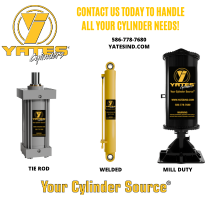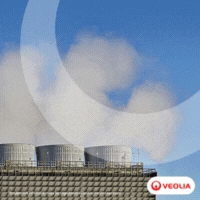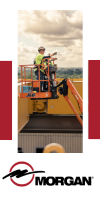Environment Ministry and ThyssenKrupp to Recognize Slags as High Value Products
01/01/2006 -
Jan. 2006 — The Environment Ministry and ThyssenKrupp Steel recently reached an agreement to recognize by-product slags as high-value products rather than waste. The agreement, which refers specifically to ThyssenKrupp Steel’s air-cooled and granulated blast furnace slags, will help to reduce the company’s bureaucratic expense and improve its marketing opportunities.
“Detailed investigations on site at ThyssenKrupp Steel have convinced us that the air-cooled and granulated blast furnace slags should not be regarded as waste within the meaning of the Closed Substance Cycle and Waste Management Act,” says Environment Minister Eckhard Uhlenberg. “Environmental protection is not just a government issue, it’s also a business issue. The agreement with ThyssenKrupp Steel shows that cooperative solutions are possible.”
ThyssenKrupp Steel has been supplying air-cooled and granulated blast furnace slag to customers in the cement and construction industries for decades. The products are specifically manufactured in connection with steel production and are subject to corresponding industry standards. Internal and external quality assurance programs guarantee that the materials meet customers’ high requirements.
Dr. Karl-Ulrich Köhler, Executive Board Chairman of ThyssenKrupp Steel AG, feels the efforts of his company have been vindicated: “The agreement with the environment ministry recognizes our measures for the targeted production of these materials. The transportation, storage and further use of the products will be greatly simplified, both at the manufacturer and at customers.” ThyssenKrupp Steel produces around 2.7 million tonnes of granulated slag and 500,000 tonnes of air-cooled slag per year, all of which is sold on the market.
Air-cooled and granulated blast furnace slags are produced from molten blast furnace slag resulting from the production of pig iron in the blast furnace. Granulated slag is obtained by cooling the slag quickly with a water jet, whereas air-cooled slag is the product of slow cooling in air. The main demand for granulated slag is from the cement industry, which uses the product instead of limestone as a raw material for cement production. Blast furnace slag cement is regarded as particularly durable and resistant to frost, chemicals and road salt. It is therefore mainly employed for structures exposed to particular loads. Air-cooled blast furnace slag is used in road building, where it offers special advantages: roads built with this slag increase in load-bearing capacity over the years due to the self-hardening properties of the material.



.jpg?lang=en-US&ext=.jpg)




.png?lang=en-US&ext=.png)